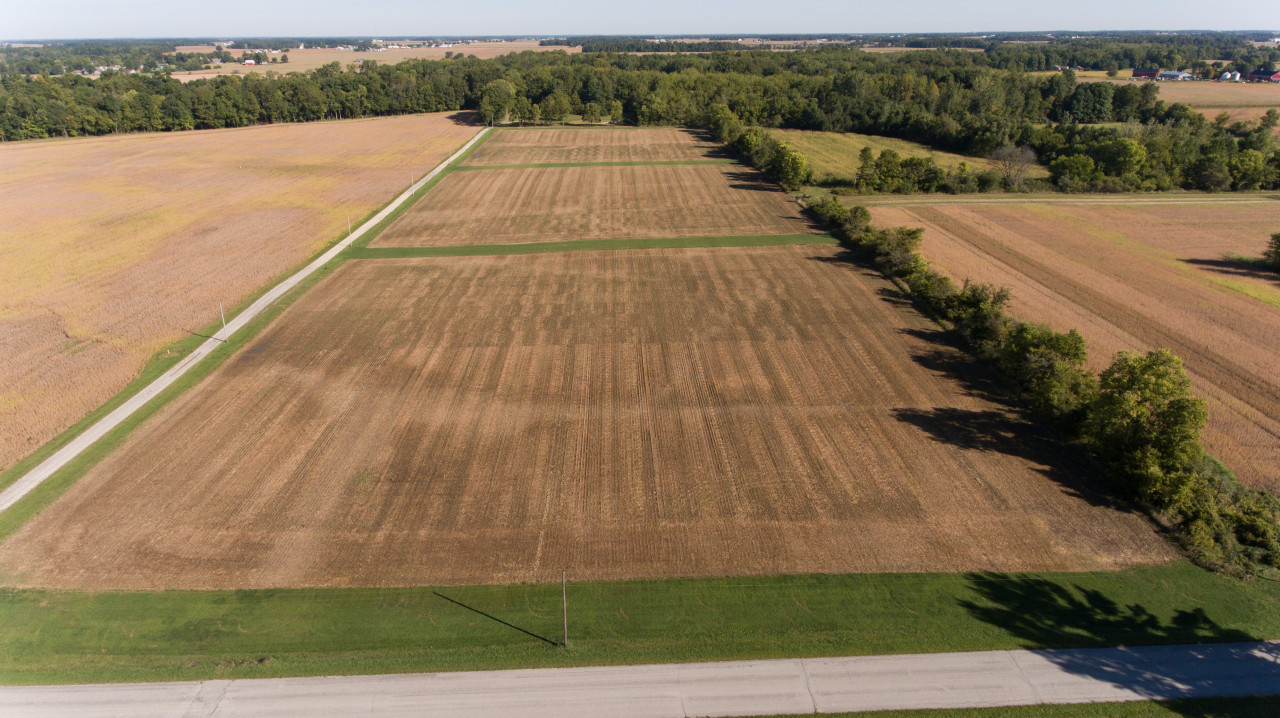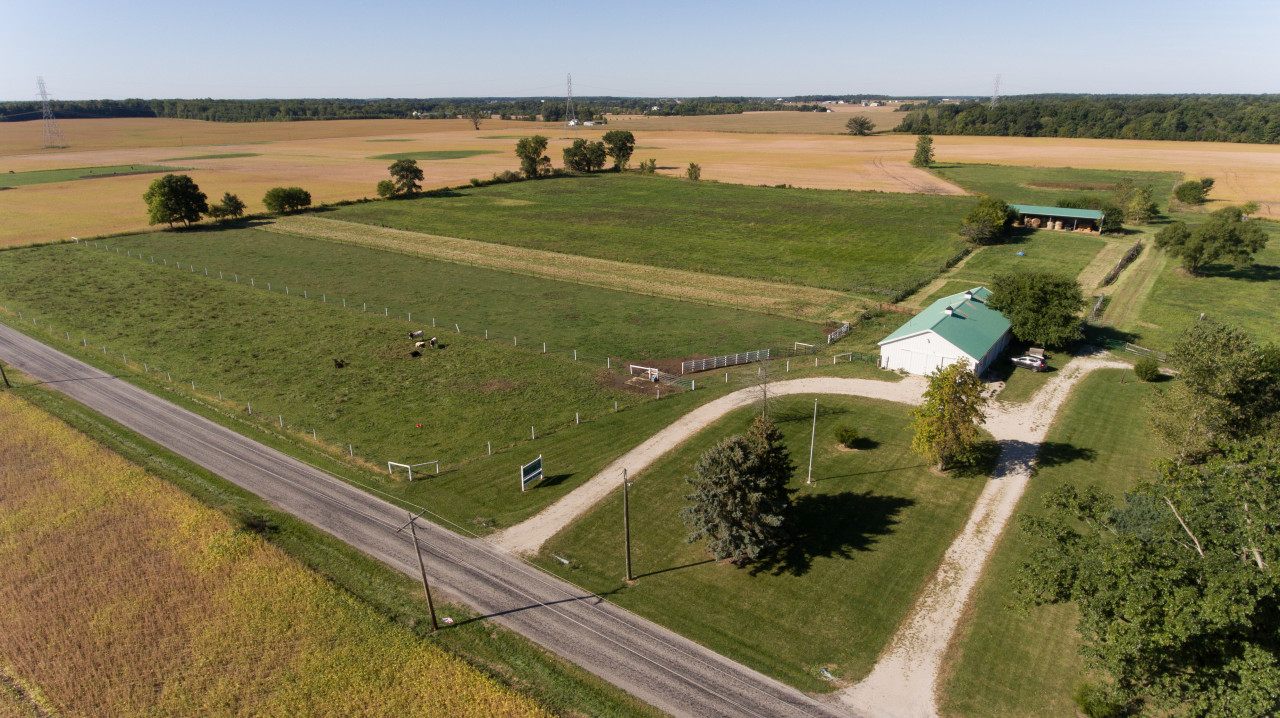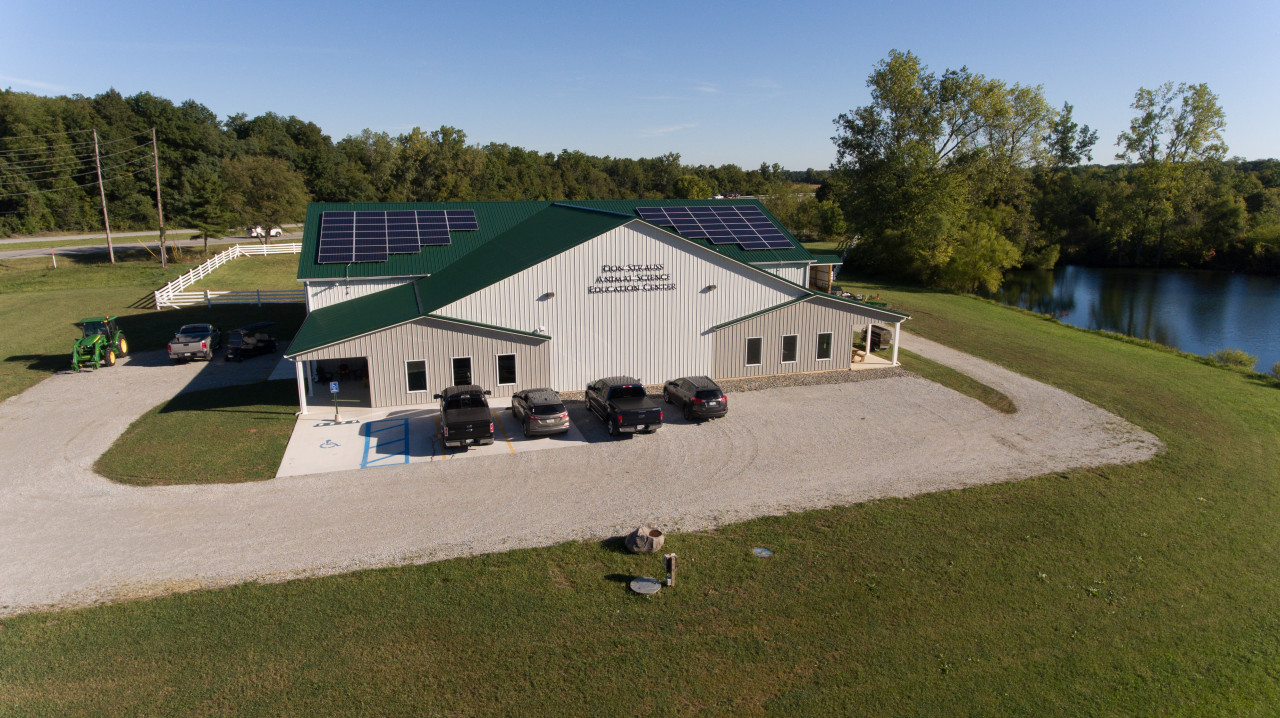Ag Learning Lab
Thornhill Nature Preserve

Huntington University has been caring for this property since the late 1970s when Ms. Mabel Thorne gifted it to the University. Located 10 minutes north of campus, there are three parcels of land at Thornhill including tillable acres, common space and buildings, and a nature preserve. Approximately 30 acres are tillable and are divided into four separate tracts. The largest parcel is 14 acres and has become the focal point for field activities and observations by students studying agribusiness-crop production and crop science/agronomy.
Until 2019, the tillable acres have been cash rented to a local farmer. Today, however, the acres are operated by Huntington University’s Forester Farms. Dairyland Seed provided the corn seed for the crop trials in 2019 on the 14 acre parcel which has turned into HU's crop research trials. In 2020, Forester Farms expanded the operations to all of the parcels and once again partnered with Dairyland Seed to conduct a soybean trial along with a corn variety trial. Additionally, sweet corn seed was provided by Direct Enterprises and has been planted with the intent of selling to the campus and local communities in 2020. The crop research has focused on the impact of microbial activity, management practices, and varieties on soil health and yield. In 2021, the University conducted a row-spacing wheat trial for Pioneer. The students compared 7.5" rows seeded with a John Deere no-till drill to 15" rows planted with a Kinze split-row planter. After wheat hearvest, a tillage demonstration was completed with TTG Equipment and a John Deere varible tillage tool. Additional partners have included AgPlus (chemcials and fertilizers), BioDyne (microbial products), and ForeFront Ag Solutions (agronomy), Elite Ag Solutions (AgLeader Precision components) and the Tri-County New Holland Group (New Holland tractor).
Thornhill complements the Ware Plant Science Production Facility greenhouse on campus by providing an outdoor learning lab for students enrolled in courses such as Crop Science, Data Management (GIS), Soil and Weather Science, Crop Health and Pest Management, and Crop Production. Future research projects involving faculty and students are being developed in conversation with the above-mentioned partners and others. Some of these future areas may include one or more of the following: microbial products; cover crop management; products and practices affecting pests and diseases as well as crop growth; tillage, planting, and residue management practices; crop rotations; and crop variety comparisons.
Three Rivers Farm – Livestock Learning Lab

In early 2020, the property owners of this 25-acre facility inquired with Huntington University leadership to gauge the interest in taking over this property. A few months later, the University began operating the farm located 20 minutes north of campus. The facility includes multiple fenced-in pastures and run-outs along with three barns, including a seven-stall animal barn with an attached office space.
Forester Farms currently has three registered Shorthorn cattle and three registered Angus cattle housed at this facility. One of the angus heifers were born at the Three Rivers Farm. Forester Farms is also using this facility to generate some additional revenue from producing and selling baled hay.
The Three Rivers Farm will serve as a hands-on learning experience for those students pursuing degrees in agribusiness-animal production, animal science, and pre-veterinary medicine. The farm will serve as a lab experience for those students enrolled in courses such as Animal Health and Disease, Livestock Management and Production, and Animal Growth and Development. Additionally, students interested in joining HU’s livestock judging team or other competitive agriculture teams will use the space for their practices.
Don Strauss Animal Science Education Center

The Don Strauss Animal Science Center (ASEC) opened in November 2020 and serves as an on-campus experiential learning space for students majoring in agribusiness-animal production, animal science, and pre-veterinary medicine. The 10,000 square foot facility includes a flexible pen space with the ability to adapt to different species of farm animals, as well as enclosed pen spaces for animals that require more isolation and/or consistent temperature. Included in the space is a 1,400 square foot classroom with observation windows overlooking the flexible pens.
The ASEC serves as a lab experience for those students enrolled in courses such as: Animal Anatomy and Physiology, Nutrition of Farm Animals, Animal Health and Disease, and Reproduction and Breeding. As well, student groups such as the Pre-Vet Club, Collegiate Farm Bureau and the HU's Livestock Judging Team call the ASEC home-base.
When appropriate, the center also serves as a space for area K-12 schools to visit and learn more about Huntington University and also the animal industry. Area 4-H clubs and FFA chapters have utilized the space as part of their youth programming. Additional community groups such as Ag Plus and Purina Feeds have used the classroom as meeting space for feeding deomonstrations.

